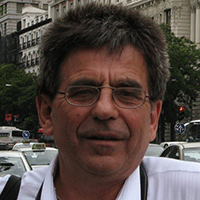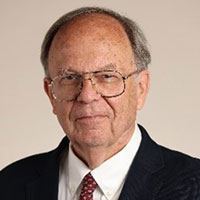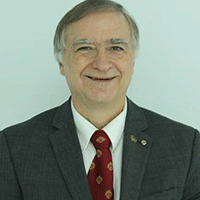Digital Twin for Energy System Performance Monitoring and Controls
Moderator: Paolo Pezzini, Ph.D., EPRI
Panelist: Giancarlo Lenci, Metroscope, Alexandria VA, USA
Panelist: Steve Seachman, EPRI, Charlotte, NC, USA
Panelist: Dr. Del A. Nargy, Analytic Advancements, Fort Worth, TX, USA
Description: This panel session will discuss the development of digital twin systems used to monitor dynamic performance operation of existing power plants. The fundamental change of operating existing power plants due to the penetration of non-dispatchable resources exposed traditional power assets to follow aggressive ramps to guarantee electric load operations. Real time models and digital twin environments are becoming powerful tools used to monitor performance of existing power plants that can also support the development of new control strategies to achieve near-zero emission targets. Regarding the monitoring of existing power plants, digital twin model supports the prompt detection of abnormal operations and the optimization of scheduled maintenance and repair services of operators, which will avoid costly forced shutdowns, thereby increasing plant availability. Regarding the development of control strategies for new energy systems, digital twin can reduce the risk of failures and facilitate the integration of new low/zero carbon technologies. The panelists in this session will cover the state-of-the-art of digital twin systems and their application in the energy field.
The Nuclear Role in Decarbonization of Electricity and Power Generation and its Use – Current Activity and Future Trends
This panel will look at two topics of the nuclear Industry – current activity on operating plants and future trends.
For currently operating nuclear plants, financial incentives, as part of the Inflation Reduction Act, served as a catalyst for many nuclear plants to extend their operating licenses and support continued operation. Reversals of nuclear plant closures on units at Diablo Canyon and Palisades are some recent examples of a turn-around in the industry with unprecedented investment in North American nuclear plants that is challenging the supply chain.
Significant engineering and manufacturing resources are needed to support the existing nuclear fleet. Active support includes thermal uprates and engineering studies to maximize the operating unit output, potential equipment upgrades to support continued operation and increased steam productions, and the on-going manufacturing and logistical challenges and mitigations being used to support these nuclear plants.
For future trends, a recent study by DOE found that hundreds of coal power plant sites across the country could be repurposed to nuclear power plant sites. This would dramatically increase the supply of reliable, dispatchable, clean electricity to the grid and deliver huge gains to the nation's goal of net-zero emissions by 2050.
Also, the recent surge in small modular reactor (SMR) development offers a game-changing solution for our energy future. SMRs hold promise not only for clean electricity generation but also for providing heat and power to remote areas, resource extraction sites, and heavy industries. Additionally, they can play a crucial role in enabling a clean hydrogen economy.
This panel will explore how the nuclear industry, through operational excellence of the current fleet, advancements like SMRs and other novel concepts, can accelerate the transition to a net-zero emissions economy.

Jovica Riznic
Canadian Nuclear Safety Commission
Moderator
View Bio

Frank Michell
Independent Consultant
Moderator
View Bio

George Mesina
INNL
Panelist

Michael Smiarowski
Siemens Energy, Inc.
Panelist
View Bio

TBD
Electric Power Research Institute
Panelist